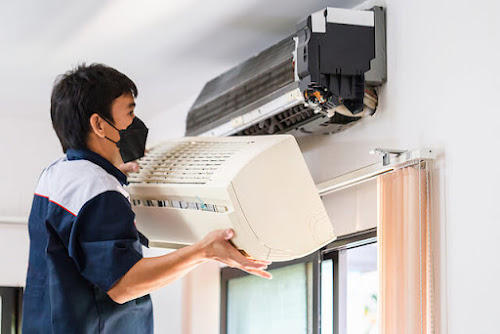Troubleshooting Guide: Common Air Conditioning Smells and Their Causes
Are you experiencing unusual odors coming from your air conditioning system? Foul smells can be a sign of underlying issues that need to be addressed promptly. In this troubleshooting guide, we will explore common air conditioning smells their causes and how air conditioner repair in melbourne will help you out. By understanding the source of these odors, you can take appropriate measures to ensure your air conditioning system is functioning properly and maintain a fresh and comfortable indoor environment.
Table of Contents
- Introduction
- Musty Odor
- Burning Smell
- Rotten Egg Odor
- Chemical or Plastic Odor
- Moldy or Mildew Odor
- Fishy Odor
- Conclusion
- FAQs
1. Introduction
When your air conditioning unit emits unusual smells, it is important to identify the root cause to prevent potential hazards and ensure optimal performance. Here are some common air conditioning smells and their possible causes.
2. Musty Odor
A musty odor is often an indication of mold or mildew growth within the air conditioning system. This can occur due to moisture buildup in the ductwork or condensation on the evaporator coil. Mold and mildew release unpleasant odors, and if left unaddressed, they can adversely affect indoor air quality and potentially lead to respiratory issues.
3. Burning Smell
If you notice a burning smell coming from your air conditioner, it is crucial to turn off the system immediately and seek professional assistance. This odor could be caused by an electrical problem, such as a malfunctioning motor or wiring issue. Ignoring a burning smell may pose a fire hazard, so it is essential to address the problem promptly.
4. Rotten Egg Odor
A rotten egg odor is often associated with a gas leak, specifically a sulfur-like smell. If you detect this odor near your air conditioning unit, it could indicate a natural gas leak, which is a serious safety concern. In such cases, evacuate the premises immediately and contact your gas company or emergency services for assistance.
5. Chemical or Plastic Odor
A chemical or plastic smell can be attributed to various factors. It may be due to the presence of volatile organic compounds (VOCs) emitted from certain materials within the air conditioning system. It could also result from overheating of electrical components or a leaking refrigerant. Professional inspection is necessary to identify and resolve the issue.
6. Moldy or Mildew Odor
Similar to the musty odor, a moldy or mildew smell indicates the presence of mold or mildew within the air conditioning system. This can occur when moisture accumulates in the system or if there is insufficient airflow. Regular maintenance, such as cleaning the air filters and ensuring proper drainage, can help prevent mold and mildew growth.
7. Fishy Odor
A fishy odor is often associated with a refrigerant leak. The refrigerant used in air conditioning systems can emit a pungent smell resembling fish. If you notice this odor, it is important to address it promptly to prevent any further damage to your system and ensure its efficient operation.
Conclusion
Unpleasant odors coming from your air conditioning system can be indicative of various underlying issues. By being aware of the common smells and their causes, you can take proactive measures to address the problems and maintain a fresh and comfortable indoor environment. Remember, it is essential to seek professional assistance if you are unsure or unable to resolve the issues yourself.
FAQs
Q1: How often should I clean or replace the air filters in my air conditioning system?
Regular cleaning or replacement of air filters depends on various factors such as usage, indoor air quality, and filter type. It is generally recommended to clean or replace the filters every 1 to 3 months to ensure optimal performance and prevent the buildup of pollutants.
Q2: Can I use air fresheners or scented candles to mask air conditioning odors?
While air fresheners or scented candles may temporarily mask the odors, they do not address the underlying issues causing the smells. It is important to identify and resolve the root cause to prevent any potential hazards and maintain a healthy indoor environment.
Q3: Is it safe to attempt air conditioning repairs on my own?
Air conditioning systems involve complex components and electrical connections. It is advisable to seek professional help for repairs to ensure safety and prevent further damage. DIY repairs without proper knowledge and expertise may lead to accidents or voiding of warranties.
Q4: How can I prevent mold and mildew growth in my air conditioning system?
Regular maintenance is key to preventing mold and mildew growth. Ensure proper drainage, clean or replace air filters regularly, and schedule professional inspections and cleanings to keep your air conditioning system free from moisture buildup.
Q5: Are foul odors from the air conditioning system always harmful?
While some odors may be harmless, they can be indicative of underlying issues that require attention. It is best to address any unusual smells promptly to ensure the safety, efficiency, and longevity of your air conditioning system.
In this article, we discussed common air conditioning smells and their causes. By being vigilant and taking appropriate measures, you can maintain a pleasant and healthy indoor environment. If you experience persistent or concerning odors, it is advisable to consult a professional HVAC technician to diagnose and resolve the issues effectively.

Comments
Post a Comment